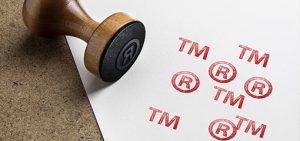Everything one needs to know about trademark registration shall be explained in the Trade Marks Act, 1999 and rules. All the parameters of registering a trademark are given below.
Things to know before trademark registration

Who can apply for a registration

According to Section 18(1) & (2),
1)Any proprietor i.e. a person who owns a trademark should apply his/her desire in registering the trademark which he had been using or desires to use to the Registrar in the prescribed form for the trademark registration.
2)One application shall be applicable for trademark registration of various classes of goods and services and the fee shall be applied in respect of the class of goods and services to be registered.
The application should be filed in the Trademarks Registry office within the jurisdiction of the place of business. In case if the business of the applicant is out of India, then the application must be filed within the jurisdiction of the service. The proprietor or owner of the trademark shall apply to register a trademark. It is important that the proprietor should have a legal ownership of the trademark which he/she wants to register. The proprietorship can generally be determined by the usage of trademark by the person himself or by any other related legal persons in their works or title. There can be an exception where a person can apply for registration even if he does not want to use it but wants to allocate it to another company to use for their services. The application for the trademark registration can be made in the names of a person or partners or the company. A guardian representing a minor can also apply for registration as joint proprietors under the provided conditions.
Person

According to General Clauses Act 1897, the ‘word’ person can represent a company or an association or a group of individuals which is registered or not.
Company

According to Section 147 of the Companies Act 1956, it is required that the company has to use its registered name notably in all the business bills and forms. It does not restrict the use of another name by the company and thus the company shall continue its business in another name. If the company buys another company along with its goods and name, then the buyer can continue trading in that purchased name in order to acquire the brand of that name. If the company wants to use the trademark of the purchased company then it shall apply for the trademark registration under its own name.
Firm
Application by a firm shall be made in the names of the partners of the firm.
Government
The State Government or the Union Government can make an application under its name.
Minor
For any minor to apply for the trademark registration, a guardian will have to represent the minor.
Trust
An application can be made in the name of a trust under the General Clauses Act and is treated as a person. For a trust to make an application by its chairman, it has to be already registered.
Foreigners
Any foreign national or a company which desires to make an application for trademark registration should register it in the same name with which the company has been registered in the respective country.
Joint applicants

If two or more people who are joint proprietors desire to use a trademark individually, then they cannot apply for the registration. But if they want to use the trademark in the business which relates all of them, then they shall apply for the trademark registration in joint names. They can apply for a registration under the condition that they should use that trademark only for the services and goods that connects all of them.
Claim to proprietorship
A person can become the owner of the trademark if and only if he either uses the trademark properly or registers it. If the application is made only for the trademark usage, then the applicant cannot claim the ownership of the trademark till he starts using it or registers the trademark. The applicant should make a genuine claim of ownership where no other person owns that mark. If another person has earlier claimed for the ownership despite of him not using the trademark shall not be considered. If the trademark is used before the date of registration then it shall be removed from the register.
Application made in bad faith-assignment cannot cure initial defect
If the applicant is not the owner of the trademark at the date of application of trademark registration then he is considered to have not fulfilled the eligibilities of the acceptable behavior of the applicant.
Effect of publication of the trademark through periodicals
There are many international journals that advertise certain trademarks in India but the question is if those journals claim to own the trademarks being advertised. This can also oppose another person desiring to use that trademark or a similar trademark. This mostly applies to medicines which has an international brand.
Copyright in mark owned by third person
During the time of applying for trademark registration, if the owner of the copyright in the trademark is a third person, then the applicant cannot claim for the proprietorship of the trademark as the copyright owner has the right to restrict the applicant from using the trademark.
Signature
An applicant who wants to use his own signature for some goods can claim ownership of the trademark even if his name is used for another set of related goods. Anyway the application of signature can be rejected according to Section 11, if the name is different from other goods and the signature is more or less the same and so can cause confusion with the name.
Use of mark by another subsequent to date of application
An applicant that has applied for ownership of the trademark and intends to use the trademark has more rights than a person who has earlier adopted and has not used it properly. This can neither take away the rights of the person who has registered earlier.
Adoption of an abandoned mark
If any proprietor or owner of the trademark has abandoned it after registration or has not renewed it, whichever person adopting the trademark can claim for the proprietorship in the absence of other circumstances.
False claim to proprietorship
If the applicant has claimed for ownership of a trademark even after knowing that a similar mark is being used by another person for similar service, then the claim is said to be false or fraudulent.